Remembering Bloodrock
Once famous for the song, "D.O.A.," this 70's band shouldn't be forgotten...
In 1970, when I was just 12 years old, my musical taste was pretty limited. I mostly listened to the Top 40 hits on the radio. So when a friend of mine from school invited me over to his house one day and played me a track on a new album he had bought, Bloodrock 2, it was a startling revelation.
The song was D.O.A. I had never heard anything like it before. Of course, neither had anyone else. D.O.A. would eventually cause an uproar and get banned from radio stations across the country by the FCC.
As years went by, I just assumed Bloodrock was a one hit wonder and never gave them any thought.
After all, my trusty Rolling Stone Record Guide gave all of Bloodrock’s albums 0 stars and called them, “The nadir of early Seventies metal and the absolute bottom of the barrel.”
Recently, I came across Bloodrock’s early albums at a used record store. On a whim, I decided to buy them and revisit the band’s music. I was shocked at what I heard:
Bloodrock had talent to burn and knew how to rock.
Intrigued, I decided to dig deeper and learn more about this band…
The Early Years
According to the website, ultimate-guitar.com, Bloodrock first formed in 1963 in Fort Worth, Texas, under the name The Naturals. The band put out one single on Rebel Records.
The line-up included Jim Rutledge on drums and vocals; Nick Taylor on guitar and vocals, Ed Grundy on bass and vocals, and a second guitarist, Dean Parks.
Later, the band changed their name to Crowd +1. They were still mostly a cover band at this point. In 1967, Dean Parks left and was replaced by Lee Pickens. The band also added Steve Hill as keyboardist too.
In 1969, Grand Funk Railroad producer, Terry Knight, heard the band perform at a local club in Fort Worth, Texas, while he was in town. Soon, the band began collaborating with Knight, who suggested they change their name to Bloodrock.
Under Terry Knight’s supervision, the band released their first album, the self-titled Bloodrock in March of 1970.
Listening to Bloodrock’s debut record today, I’m blown away by just how great it is — clearly, this is the band’s best album.
On this album, Rutledge’s soaring, gutsy vocals are ably supported by Lee Pickens’ incredible guitar work and Steve Hill’s amazing keyboard skills on the Hammond B-3 organ. Perkins’ guitar riffs really stand out and the interplay between the guitar and keyboards are amazing.
In short, this album rocks.
Interestingly, the opening track, Gotta Find a Way, contains a back-masked message. When you play the song backwards, there’s a part saying “anyone stupid enough to play this song backwards deserves what he is about to hear.” That is followed by Rutledge reciting the Lewis Carroll nonsense poem, Jabberwocky.
Bloodrock’s debut must have sold pretty well because that same year the band went back into the studio with Terry Knight to record their follow-up, which would include their most well-known song, D.O.A.
Bloodrock 2 and D.O.A.
Released just 7 months after their debut, Bloodrock 2 is a very good album but not as strong as their first album, in my opinion. I think Cheater is the best song on the album. I’m surprised it was never a hit.
However, nothing prepared listeners for the band’s eight and half minute epic, D.O.A, which also became the first (and only) single from the album (but cut down in half to make it more radio friendly).
Not only would D.O.A. become Bloodrock’s only hit (peaking at #36 on Billboard before it got pulled from radio stations by the FCC), it would also become one of the most controversial rock songs of the decade.
The song begins with the haunting guitar/organ riff imitating the sound of a siren (using a musical motif called “the devil’s triad,” which was later popularized by Foghat). Yet, it’s the first person point of view of the lyrics that I think really unsettled listeners and made this song so unique.
Until then, previous songs about plane crashes, such as J. Frank Wilson’s Last Kiss, or The Everly Brothers’ Ebony Eyes, were always sung from the viewpoint of someone who had lost their love in a plane crash.
However, in D.O.A., Bloodrock tells the story from the point of view of the dying victim, which makes it unique.
Surprisingly, the idea for D.O.A. came from an incident in Lee Pickens’ own life.
When he was 17, Pickens wanted to become an airline pilot. One day at flying lessons, Pickens was watching a friend of his pilot a small plane when it suddenly rolled and crashed, instantly killing Pickens’ friend. A while later, Pickens decided to use the incident as the inspiration for D.O.A.
According to keyboardist Steve Hill, even before the FCC banned the song from the airwaves, many radio stations had stopped playing the record.
The reason? People were pulling over in their cars because they thought there was an ambulance behind them.
Grand Funk’s Little Brother
Even though D.O.A. was removed from the airwaves, Bloodrock 2 sold well and the band toured with both Jim Hendrix and Grand Funk Railroad during 1971, playing 38 sell-out performances in 52 days. The band also released their next album, Bloodrock 3, later that same year too.
This would be the band’s last album produced by Terry Knight.
Listening to Bloodrock 3 today, I think the band attempted to go back to what made their first album so good and combine that with elements of Bloodrock 2. The sound is heavier. My favorite track on the album is Jessica, which has some lightning fast guitar/organ riffs.
Even so, around this time, Bloodrock became derisively labeled as Grand Funk’s little brother by some members of the music media.
Then, after the release of their next album, Bloodrock U.S.A, in October of 1971, both Jim Rutledge and Lee Pickens left the band.
Bloodrock Without Heavy Rock
In one of the dumbest decisions ever made in rock history, after Rutledge and Perkins’ departure, the remaining members of of Bloodrock decided to completely change direction and become a jazz-fusion band.
With their new sound in mind, Bloodrock hired Warren Ham to replace Jim Rutledge. Not only was Ham was a talented singer, he also could also play the flute and saxophone.
When Bloodrock released their next album, Passage, in 1972, the band sounded a lot like Kansas, who would form a year later in 1973.
In yet another bad decision, this new version of Bloodrock refused to play their best known song, D.O.A, live in concert.
As to be expected, fans were upset and wanted the old Bloodrock back.
Because of this, neither Passage or its follow up album, Whirlwind Tongues, achieved any commercial success.
Bloodrock broke up in 1975.
Closing Thoughts
For a brief period of time, from 1970 throughout 1971, Bloodrock was a force to be reckoned with in American rock.
Jim Rutledge was a great vocalist who could who could belt out songs with both emotion and attitude. In addition, both guitarist Lee Pickens and keyboardist Steve Hill deserve accolades for their incredible musicianship as well.
As I stated before, this band deserves much more respect than they’ve received through the years.
Finally, if you’ve never heard Bloodrock’s music before, or only know the band’s song, D.O.A., check out their first three albums.
This is a band that should still be heard today.
And, if you’ve never heard the song, D.O.A., you can listen to it here:




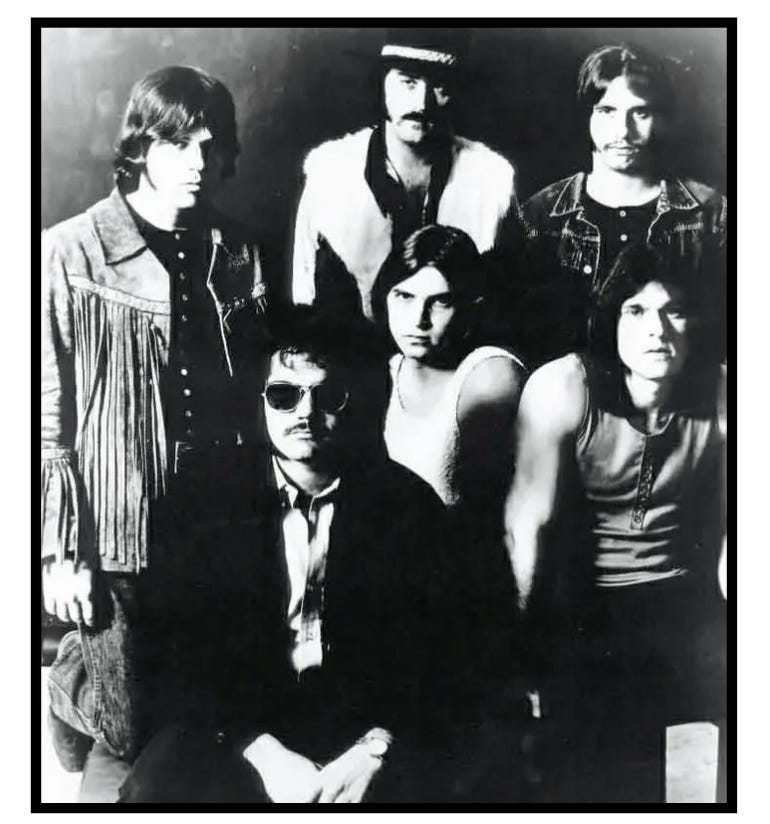
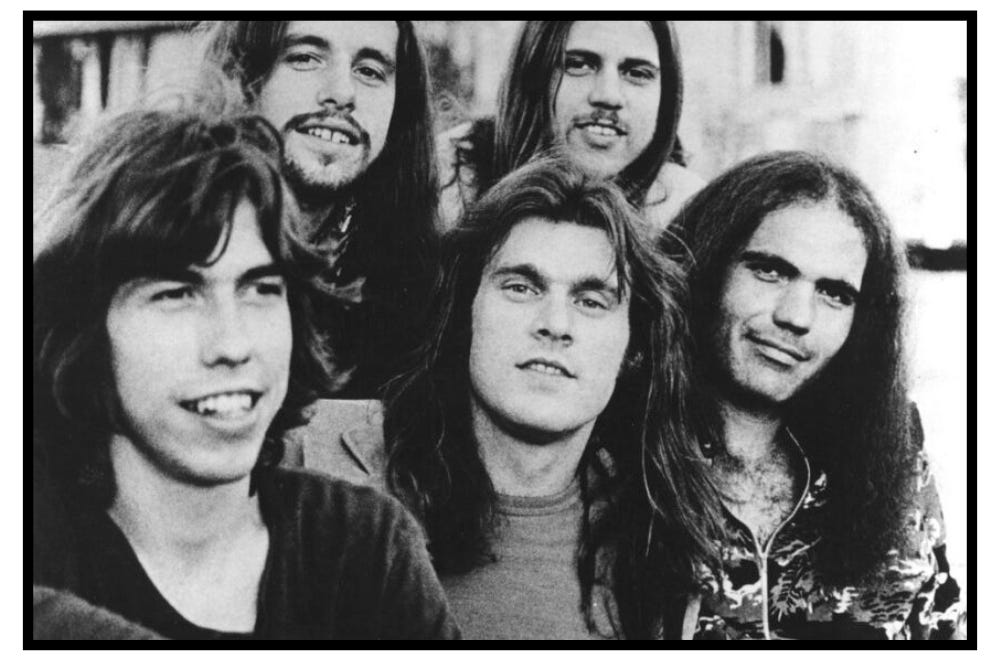
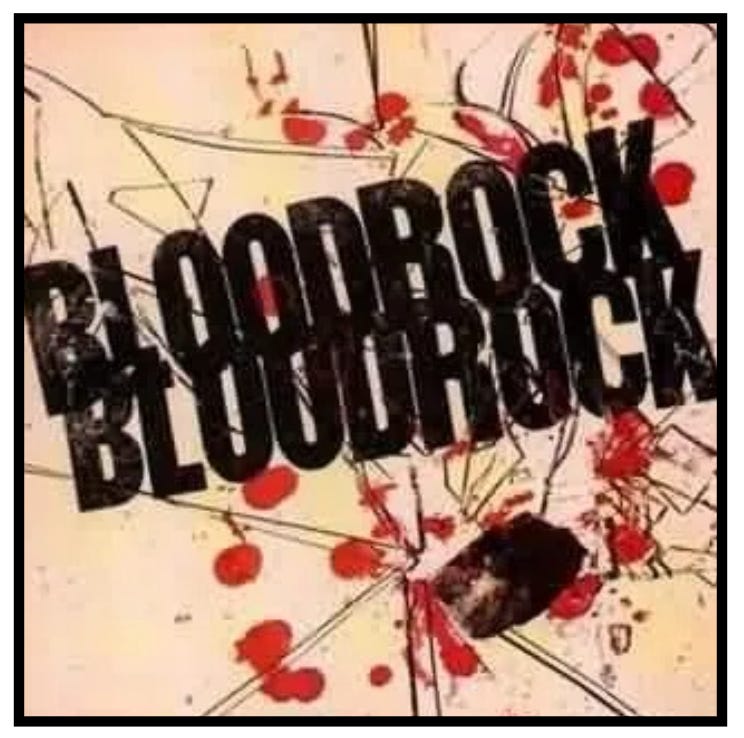
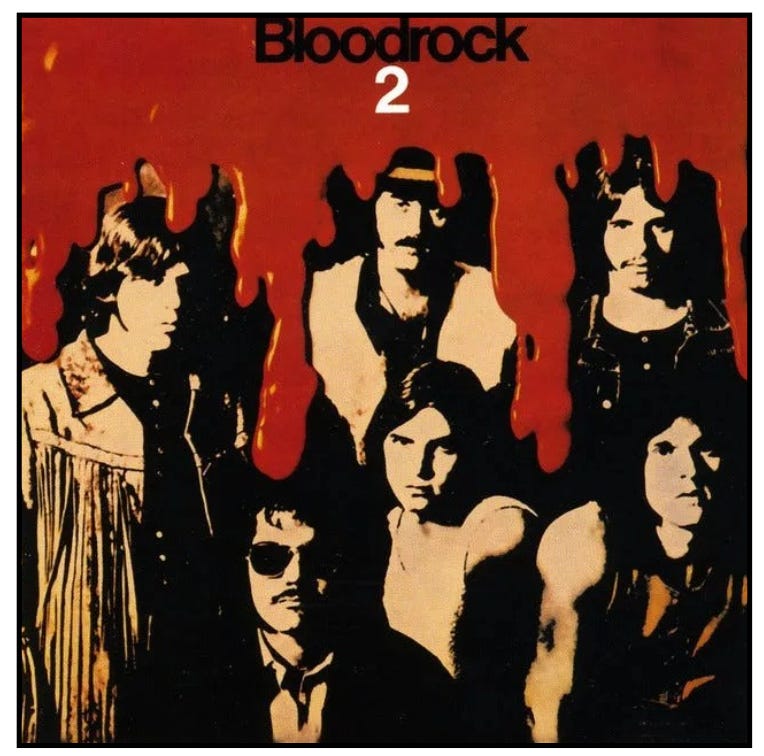
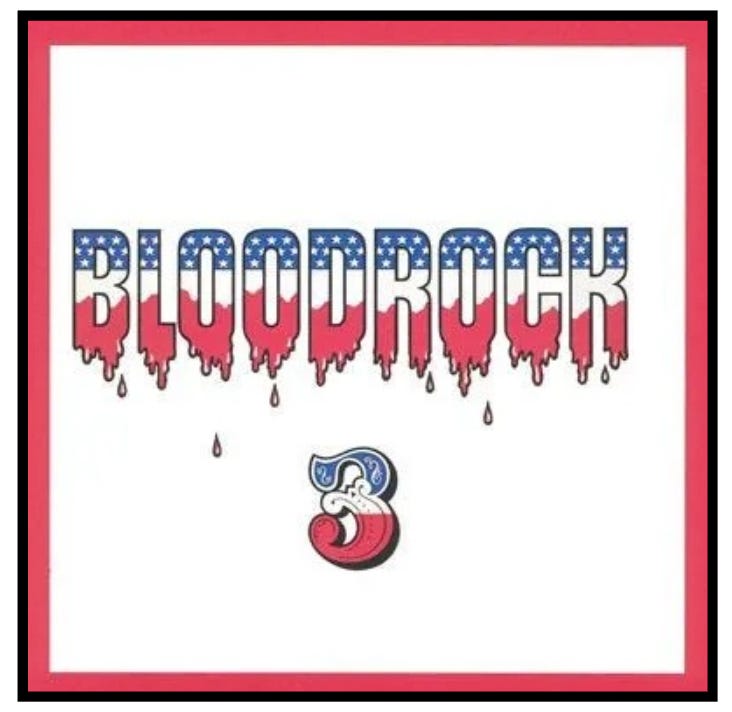
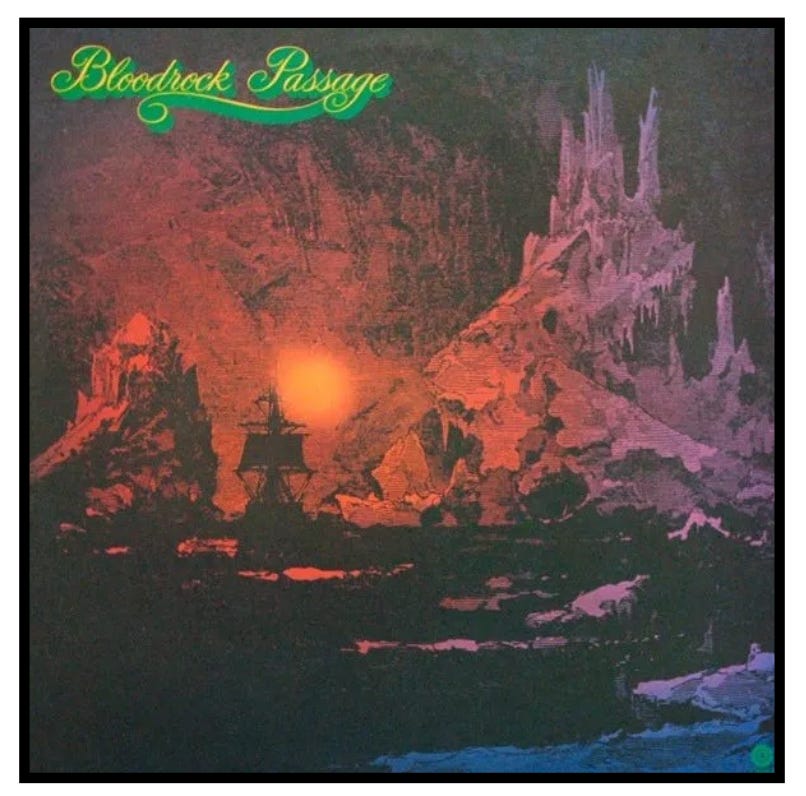
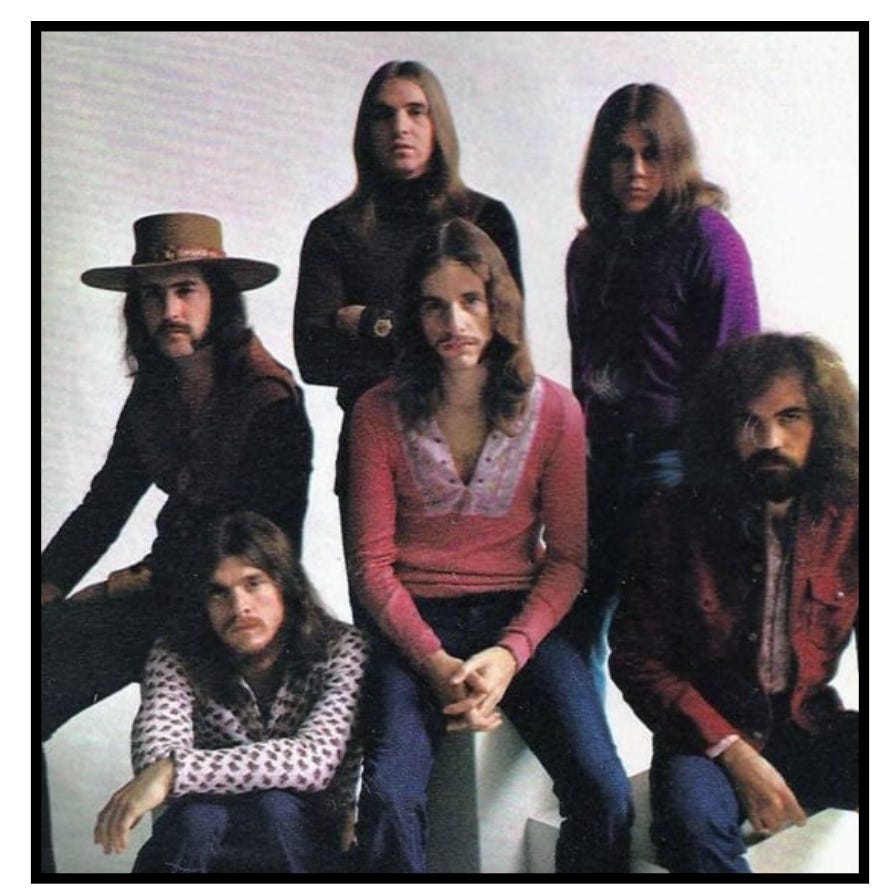
I'd never heard of them and I've only listened to the first song on the first album. It sounds very much of its time, sure, but it's good. Is "garage metal" a genre? That's what it sounds like to me. Why does Rolling Stone hate them so much?
Great article. I didn’t know about them.